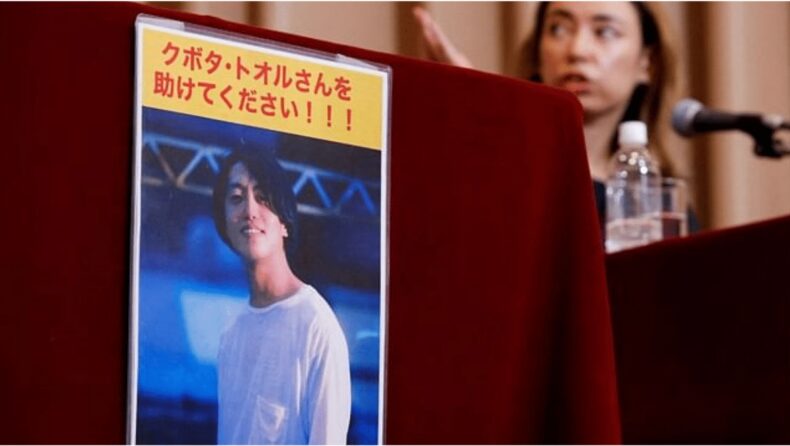A court in the military-run nation of Myanmar sentenced a Japanese filmmaker to ten years in prison on Thursday for breaking the country’s sedition and communications laws.
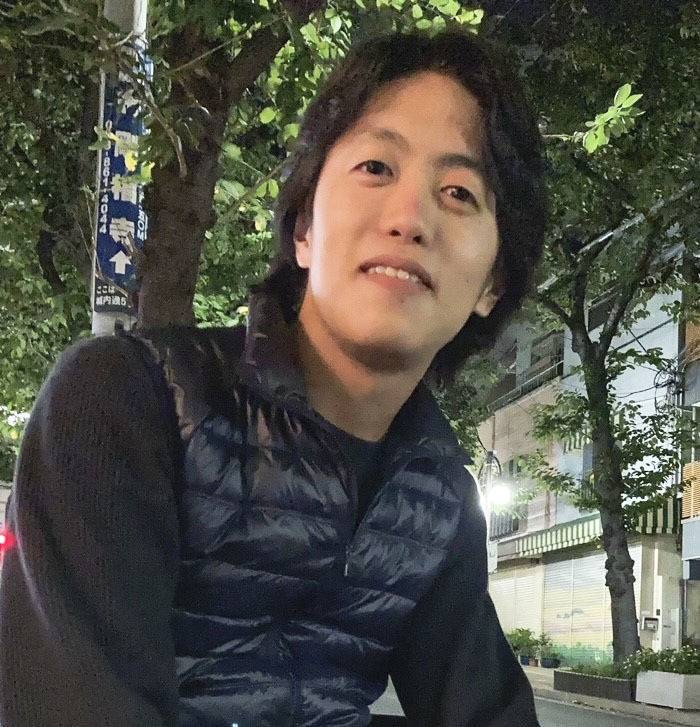
More than 2 months after being detained while documenting an anti-coup demonstration, the Myanmar regime has sentenced a Japanese filmmaker to ten years in prison, a military spokesman announced on Thursday.
Since the military toppled Aung San Suu Kyi’s democratic government in February 2021, it’s estimated that more than 15,600 people, including lawmakers, activists, and journalists, have been detained. This has led to massive protests across the nation and a well-established resistance movement.
Myanmar: The aftermath of the coup and the country under military regulation
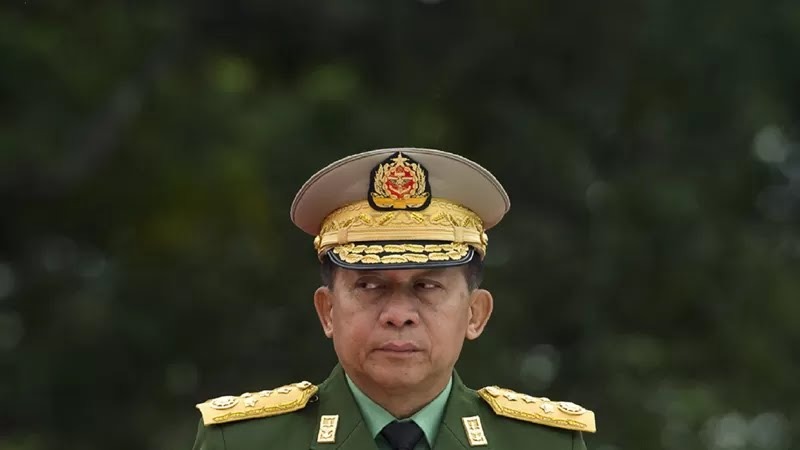
The Tatmadaw, or military, is in power under General Min Aung Hlaing’s leadership. After overthrowing the democratically elected civilian administration, he and his military leaders seized power.
Since then, Gen. Hlaing has been the target of international outrage and sanctions over the military’s alleged involvement in the violation of human rights and violence against religious and ethnic minorities.
Over 2,100 people have reportedly been slain by the regime’s security forces since the coup, according to the Assistance Association of Political Prisoners (AAPP), a human rights organisation.
Ever since the coup last year, the military has repressed press freedoms, imprisoning journalists and photographers and cancelling broadcasting licences as the nation spiralled into disorder. The military has detained thousands of people, including journalists, students, politicians, bureaucrats, and foreigners.
Following the coup last year, opposition activists established the Campaign for Civil Disobedience (CDM), which has been organizing strikes and large-scale demonstrations. Rubber bullets, water cannons, and live fire have all been used by the military to curb opposition.
https://www.hrw.org/news/2022/03/18/myanmar-un-rights-body-should-advance-justice
Myanmar: Japanese filmmaker Toru Kobuto’s 10-year imprisonment for sedition
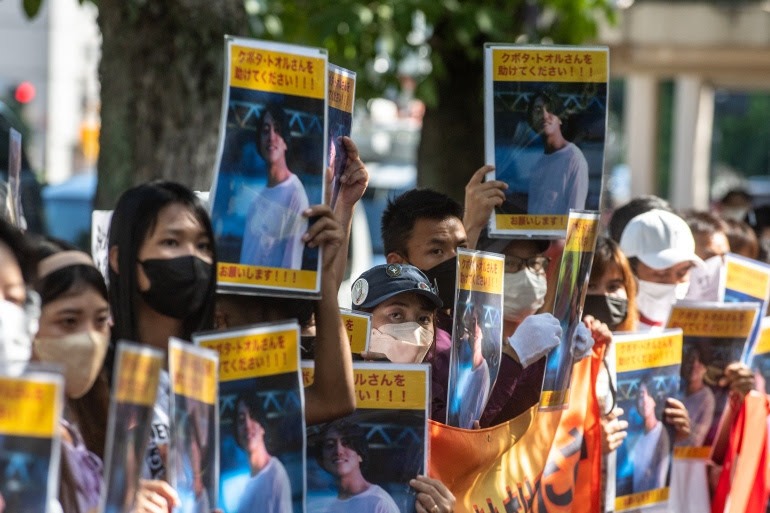
In July, two Myanmar locals and 26-year-old Toru Kubota were detained close to an anti-government demonstration in Yangon’s commercial centre. A military spokesman announced in a statement that he had been issued a seven-year prison sentence on Wednesday for violating legislation that makes disseminating information that threatens peace and stability and state security illegal.
According to the source, Kubota was given a sentence by a court that was established within the infamous Insein Prison housing political prisoners in Yangon. According to the statement, he was also given a three-year term for inciting dissent against the military, an accusation that was frequently used in the crackdown.
The junta announcement also stated that the terms would be served consecutively.
Kubota is accused of violating immigration laws as well, according to a diplomat at the Japanese embassy in Myanmar. The subsequent hearing is planned for October 12.
His friend Yoshitaka Nitta stated at a press event in Tokyo in August, that the director had travelled to Myanmar in July and had been producing a “documentary showcasing a Myanmar person.”
Kubota has previously produced movies about “refugees and ethnic concerns in Myanmar,” based on a bio on the FilmFreeway website.com.
Japan has a history of cooperation with the Myanmar military and is one of the country’s largest donors. Tokyo declared after the coup that it would freeze all new aid but refrained from placing specific penalties on police and military leaders.
Kubota’s detention is a “slap in the face” for Tokyo. It’s time for Japan to stop playing games, and move to support real international sanctions that will squeeze the junta’s revenue sources.
-asserted Phil Robertson of Human Rights Watch
Myanmar: Thwarting dissent with censorship and arbitrary arrests
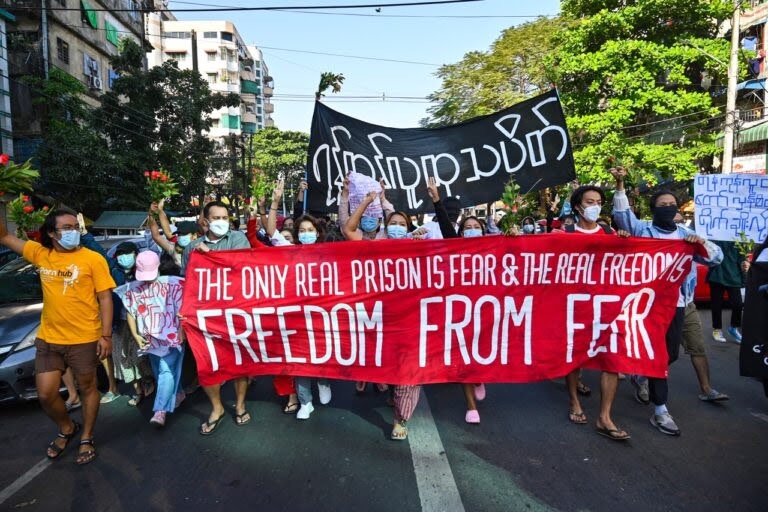
Following isolated trials, 4 male activists were executed in secret. They were charged with assisting rebels in their battle with the army of Myanmar. Among them were Phyo Zeya Thaw, a prominent lawmaker and hip-hop singer, and democracy champion Kyaw Min Yu, also known as Ko Jimmy. Former prime minister Aung San Suu Kyi has also obtained multiple prison sentences from the military.
Another instance of Myanmar’s atrocious human rights record.”
Amnesty International
In response to the junta’s death of four political prisoners, Japan’s defence ministry announced in September that it will suspend a training programme for troops of Myanmar’s military beginning in 2019. The international backlash resulted from the military’s execution of the 4 in July, which marked Myanmar’s first application of the death penalty in many years.
Following American nationals Nathan Maung as well as Danny Fenster, Pole Robert Bociaga, and Japanese journalist Yuki Kitazumi, who were all later released and deported, Kubota is now the fifth international journalist to be held in Myanmar.
A closed-door trial was held inside of Insein for Fenster, who was detained in May of last year as he tried to leave the country, on allegations of unlawful association, provocation against the military, and violating visa regulations. Before receiving clemency and being deported, he was given an 11-year prison term.
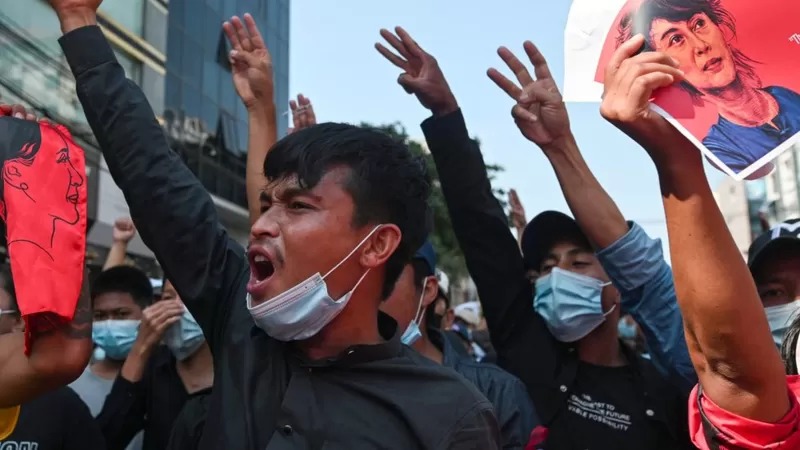
48 journalists are still being held as of March of this year, by the monitoring organisation Reporting ASEAN.
More than 2,300 civilians have died as a result of the military’s crackdown on dissent since it toppled Aung San Suu Kyi’s administration, claims a local monitoring organisation.
The military maintains that nearly 3,900 civilian deaths were caused by anti-coup fighters.







